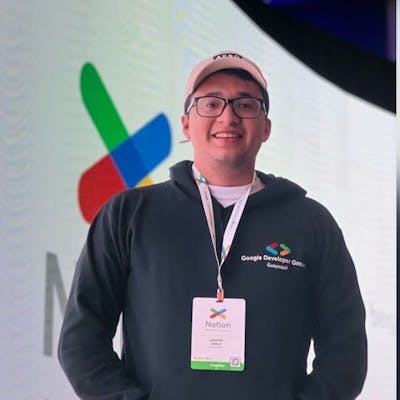Ingredients to win the NASA hackathon

The NASA International Space Apps Challenge is a hackathon competition for programmers, scientists, designers, storytellers, creators, builders, technologists, and innovators, and is considered one of the largest hackathons in the world.
After participating in the 2019 and 2020 editions of the NASA Space Apps Challenge in Guayaquil, my team and I decided to embark on another exciting journey during the 2021 hackathon. Fortunately, we managed to secure victory in the local hackathon, allowing us to represent Ecuador on the global stage. We take pride in being the first Ecuadorian team to win the global hackathon, specifically in the "Best Narrative" category, thanks to our game titled "SPACE TRAVELERS."
"Space Travelers" is a gaming application designed to help children aged 10 to 14 learn about the dangers astronauts might face in space during long-distance journeys, such as a trip to Mars. Among the risks the player will encounter in space are isolation, radiation, gravitational fields, the environment, and the distance from Earth. Players will learn while having fun with all the missions the game includes, whether playing alone or with friends. "Space Travelers" is significant because it provides a realistic experience that will captivate children's interest

The Space Travelers team is composed of Alex Velez, Jaime Pizarro , Valeria Barzola, Joangie Márquez, Carlos Loja, and myself

After three consecutive years working as a team in hackathons, we have identified the following key ingredients for achieving success:"
1. Building an Effective Team:
Total trust in each team member: Trust is fundamental for effective teamwork. Each member should have confidence in the skills and commitment of others.
Understanding strengths and weaknesses: Recognizing the strengths and weaknesses of each team member enables effective task allocation and maximization of individual skills.
Constant and effective communication: Maintaining open and constant communication is essential. Ensure everyone is aware of progress and any issues that may arise.
2. Designing an Action Plan:
Prior to the Hackathon:
- Prepare a solid plan, including strategy discussions, task assignments, and a deep understanding of the problem and potential users.
During the Hackathon:
- Have fun while working on the project. Fill out the NASA-provided project dashboard and conduct tasks in English or with subtitles for better understanding.
3. Creating a MVP or Functional Prototype:
Use easy prototyping tools: Utilize tools such as Figma, Canva, Powtoon, or FlutterFlow for rapid prototyping within the limited timeframe.
Balance innovation and viability: While it's essential to be innovative, consider the feasibility of your project in terms of available resources and time during the hackathon.
4. Presentation and Effective Communication:
Learn to sell the idea and prototype: Presentation is crucial. Clearly and persuasively explain both the idea and the prototype, emphasizing how your solution addresses the proposed problem and why it is valuable.
Practice the presentation: Practice multiple times to ensure clear communication within the allocated time. Incorporate concrete examples, visual demonstrations, and a strong narrative to make your presentation memorable.
Be creative and passionate: The NASA Space Apps Challenge encourages creativity and passion for space exploration. Don't hesitate to think outside the box and present a solution that reflects your enthusiasm for science and space technology. Passion and enthusiasm can be contagious and attract the attention of judges and fellow participants.
Remember, winning a prestigious hackathon like the NASA Space Apps Challenge requires preparation, teamwork, innovation, and effective presentation. Above all, enjoy the process and learn from the experience, regardless of the outcome.
 josephinoo - Senior Software Engineer
josephinoo - Senior Software Engineer